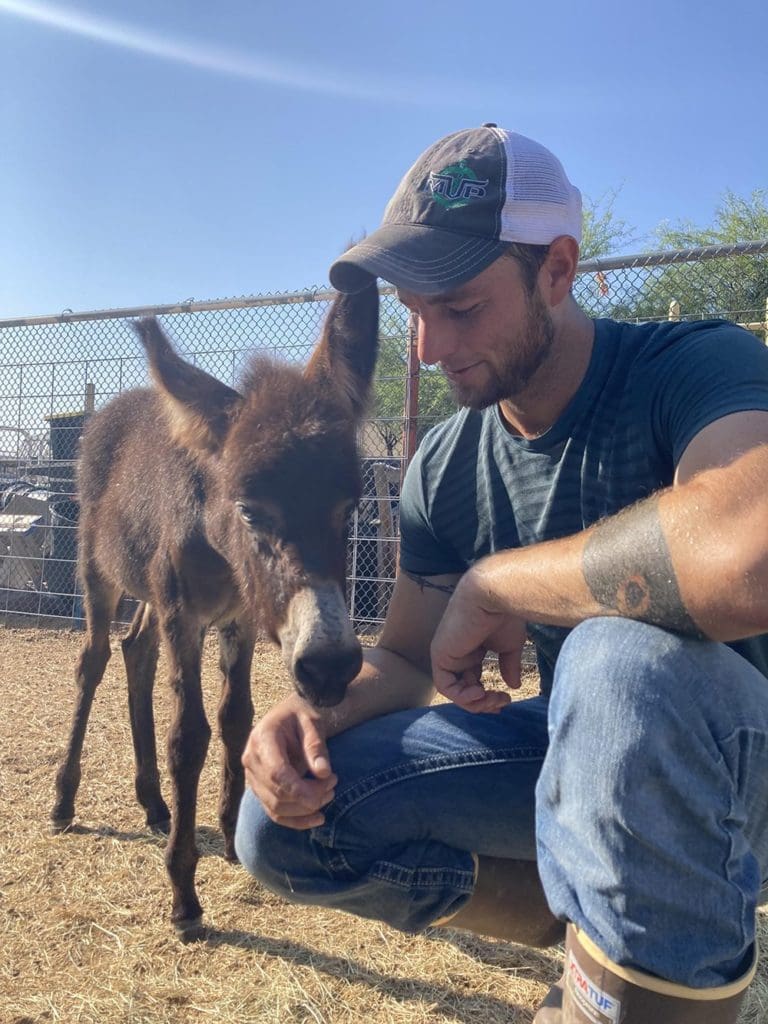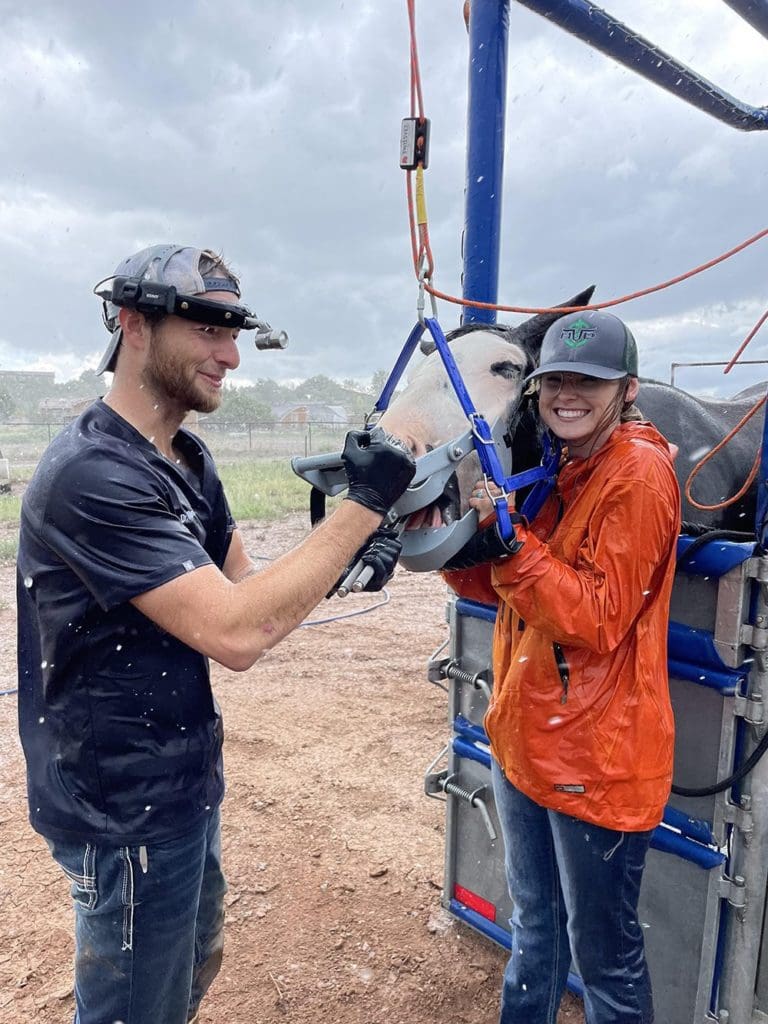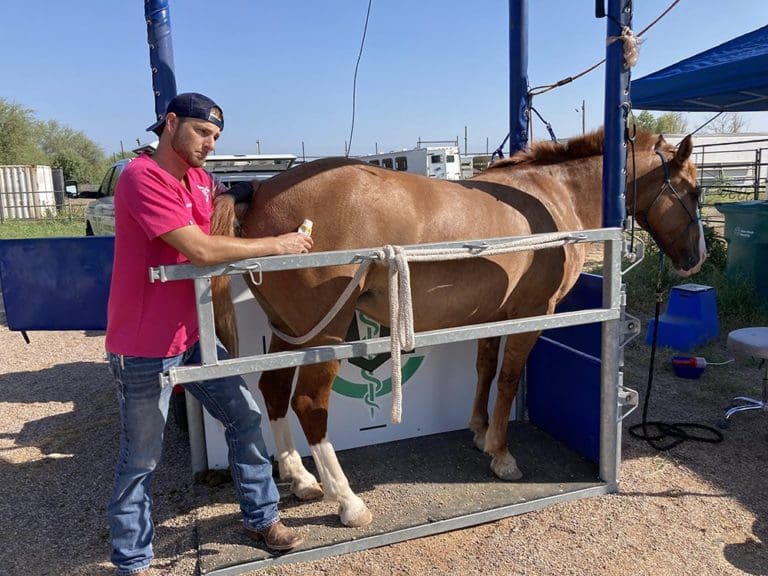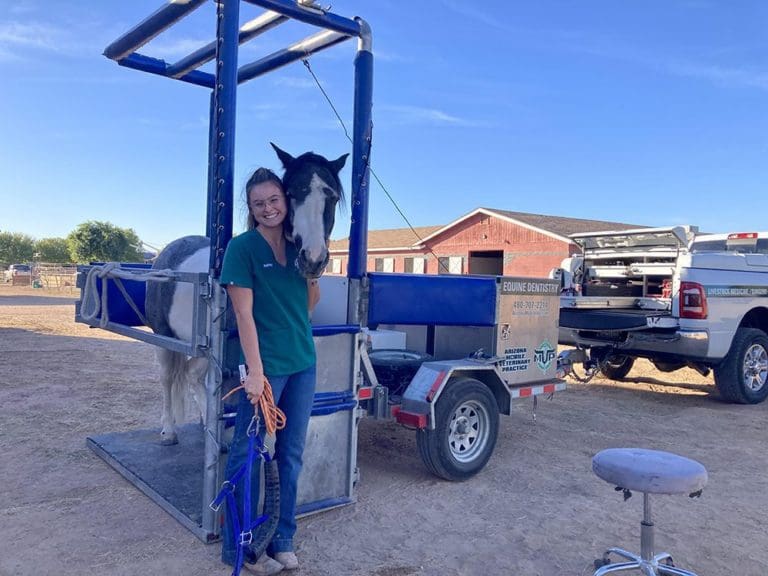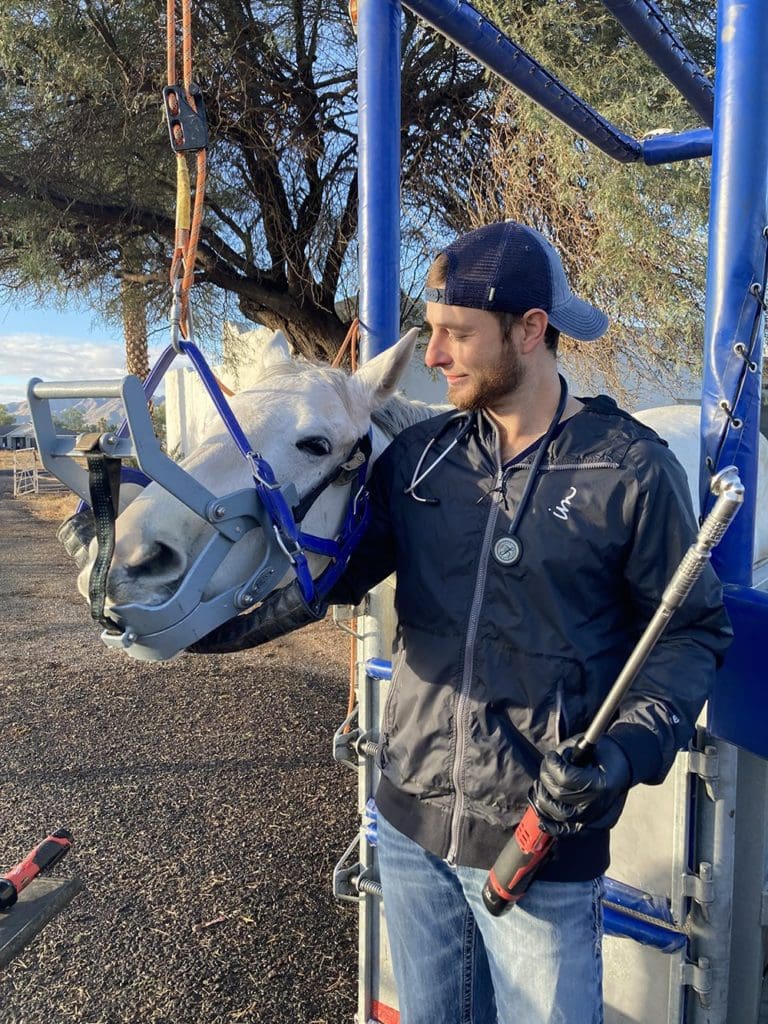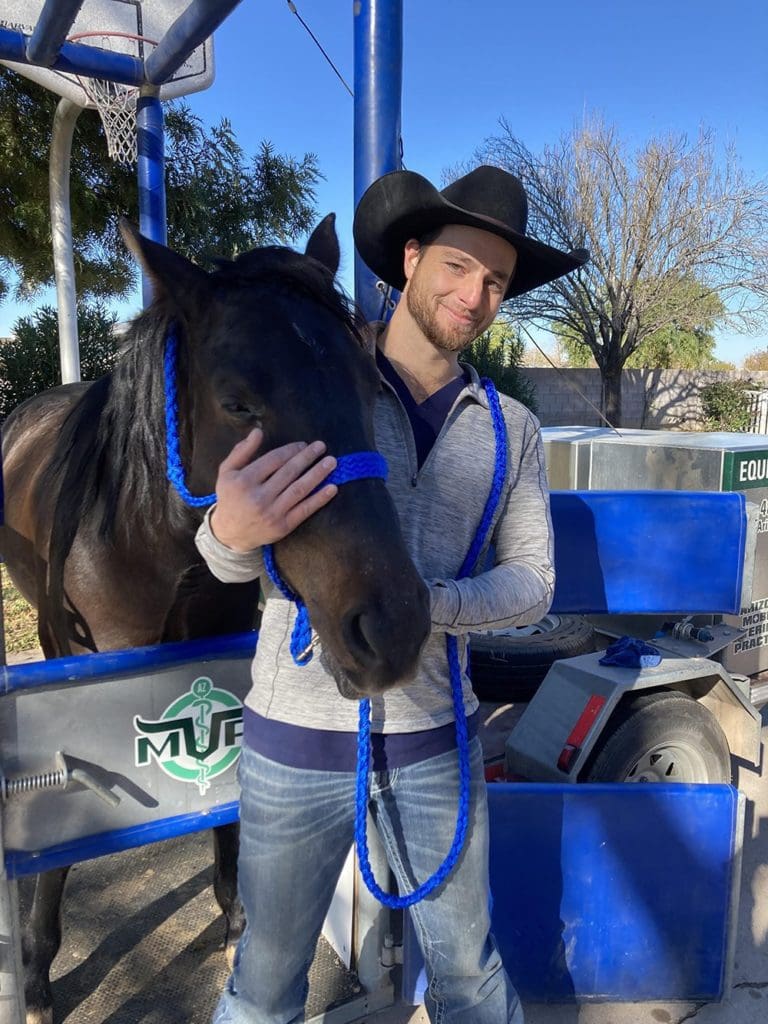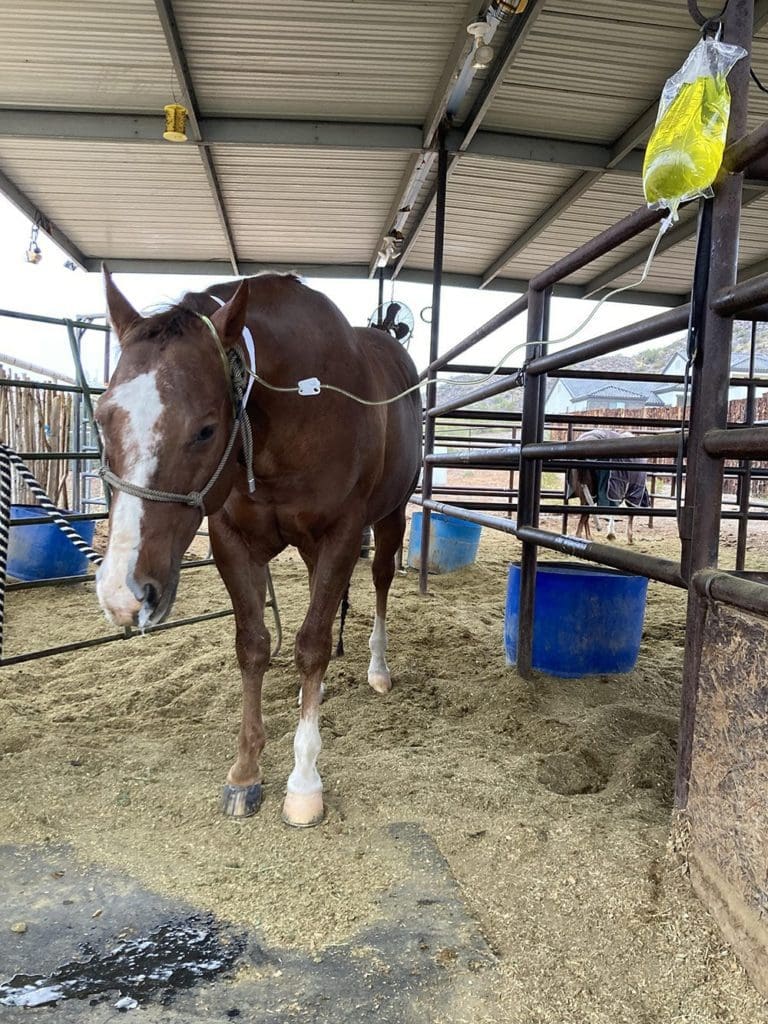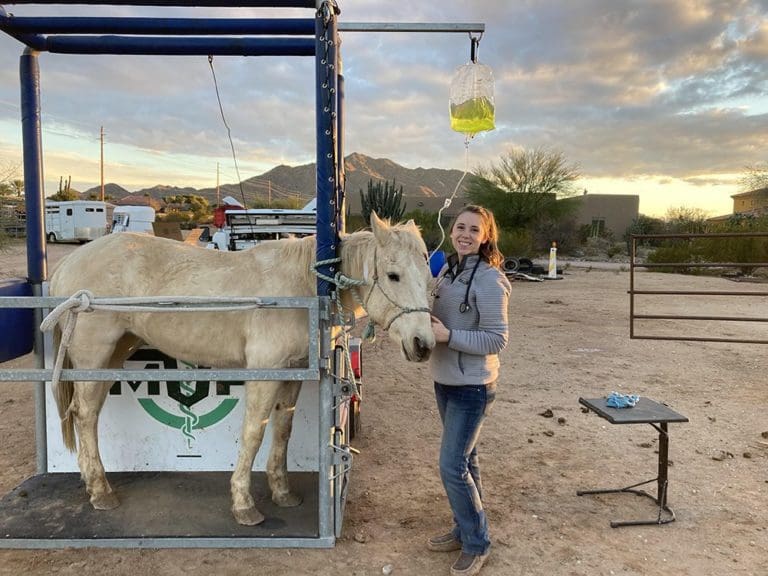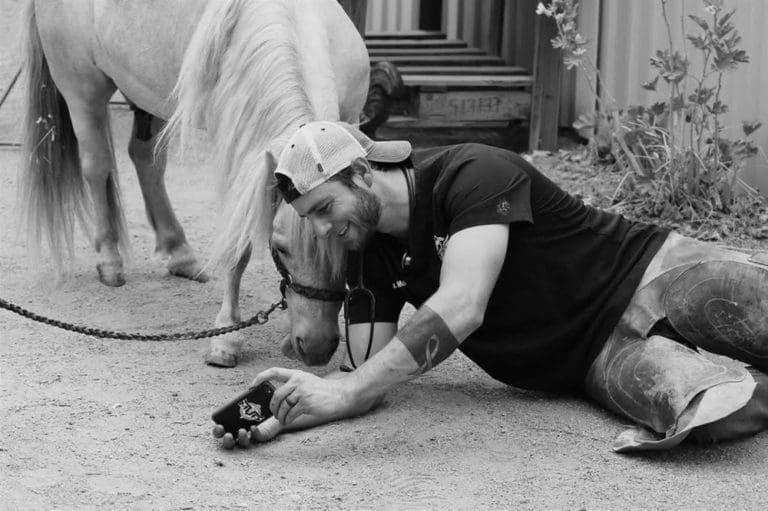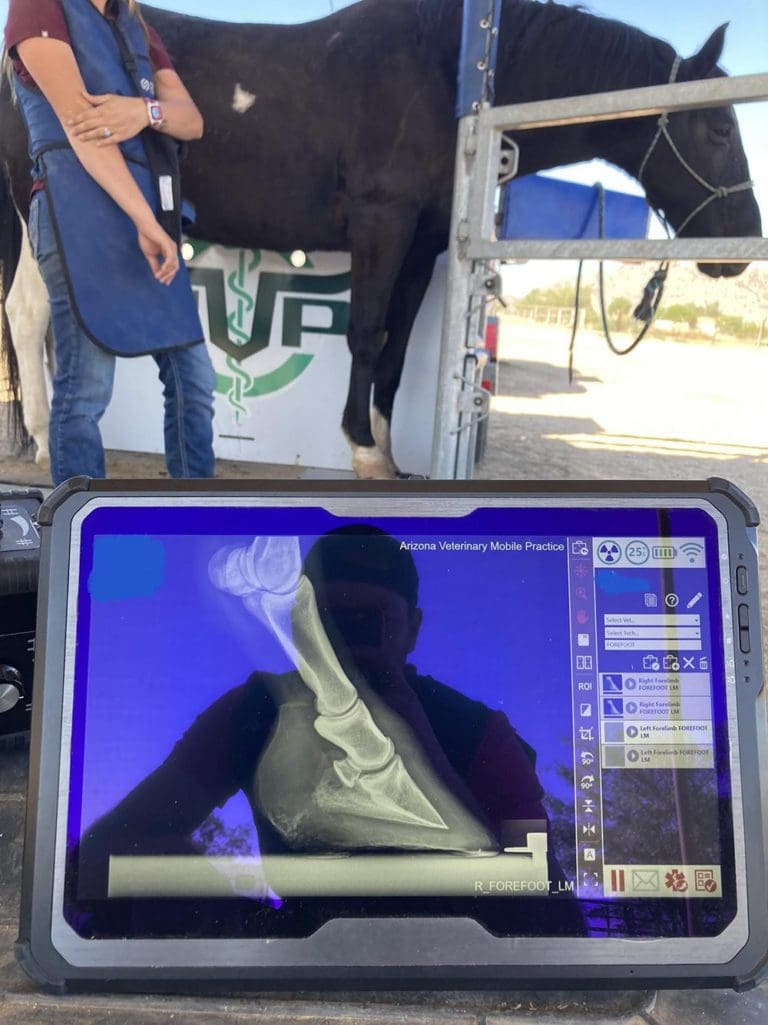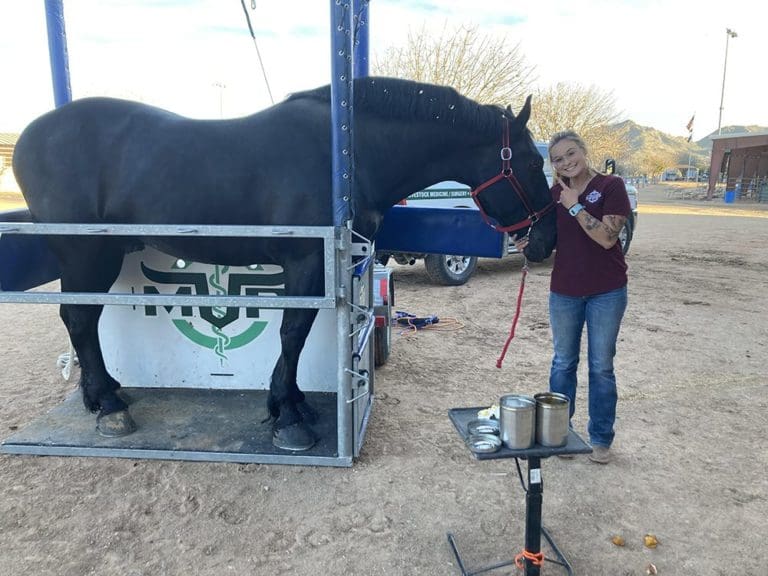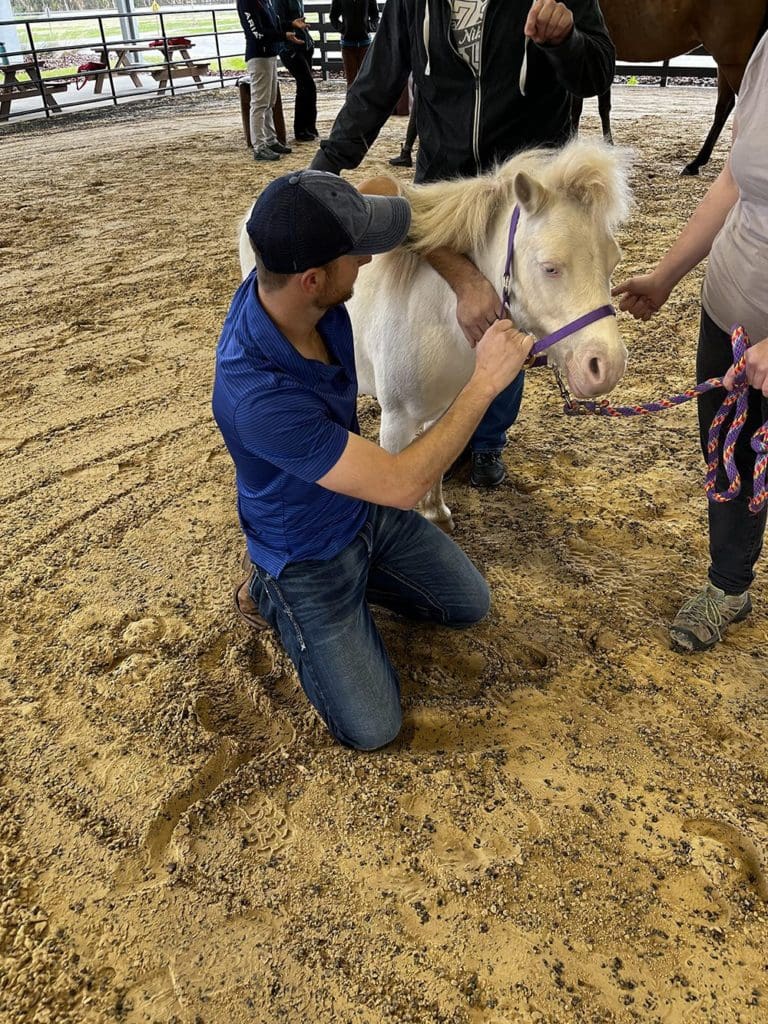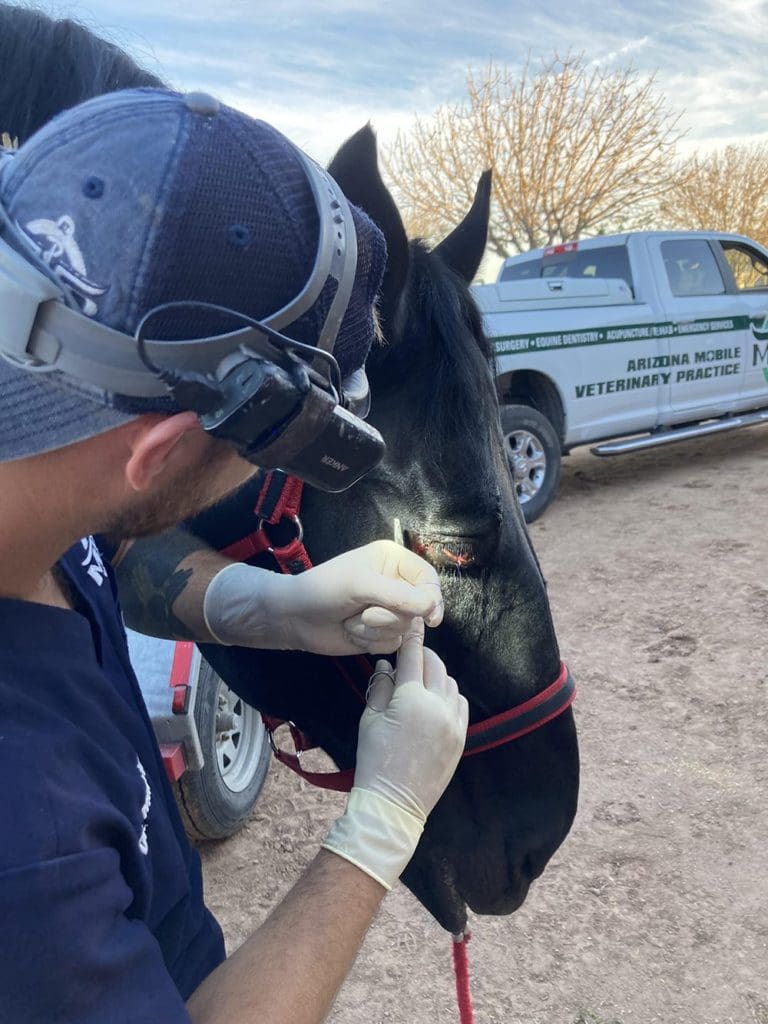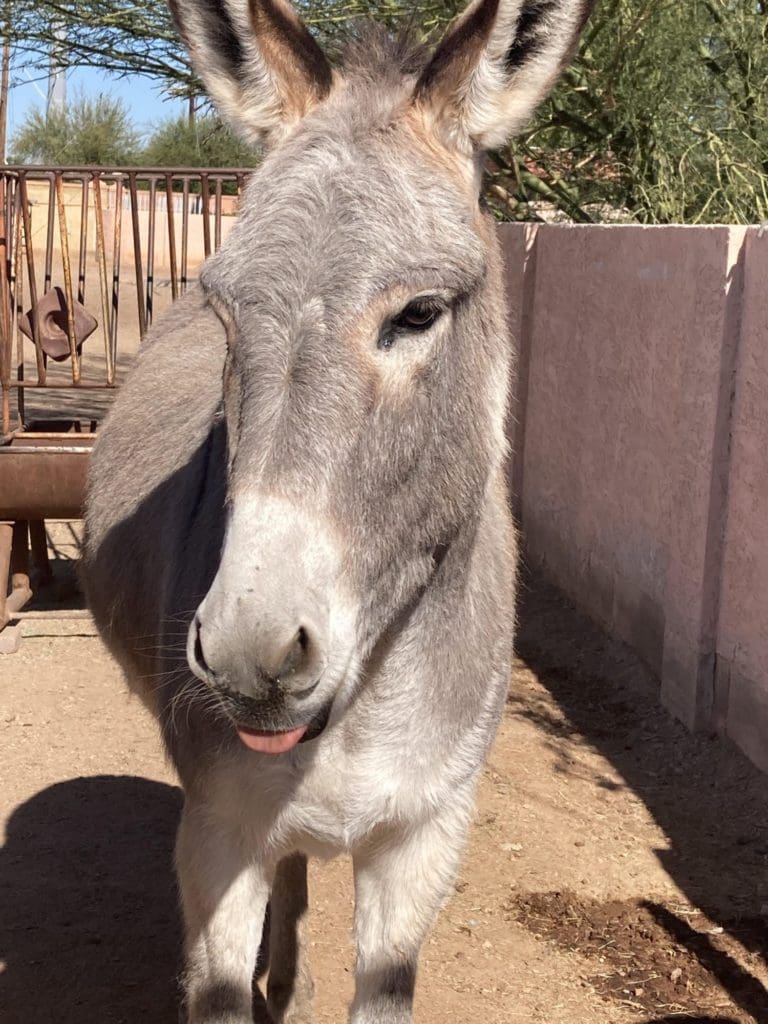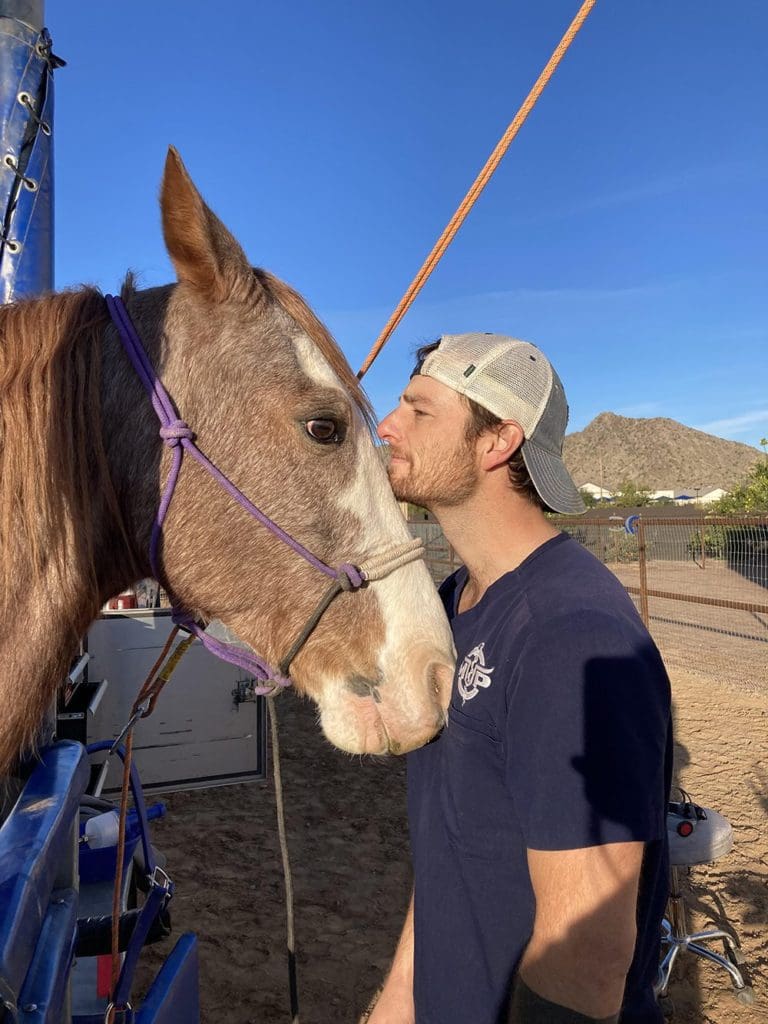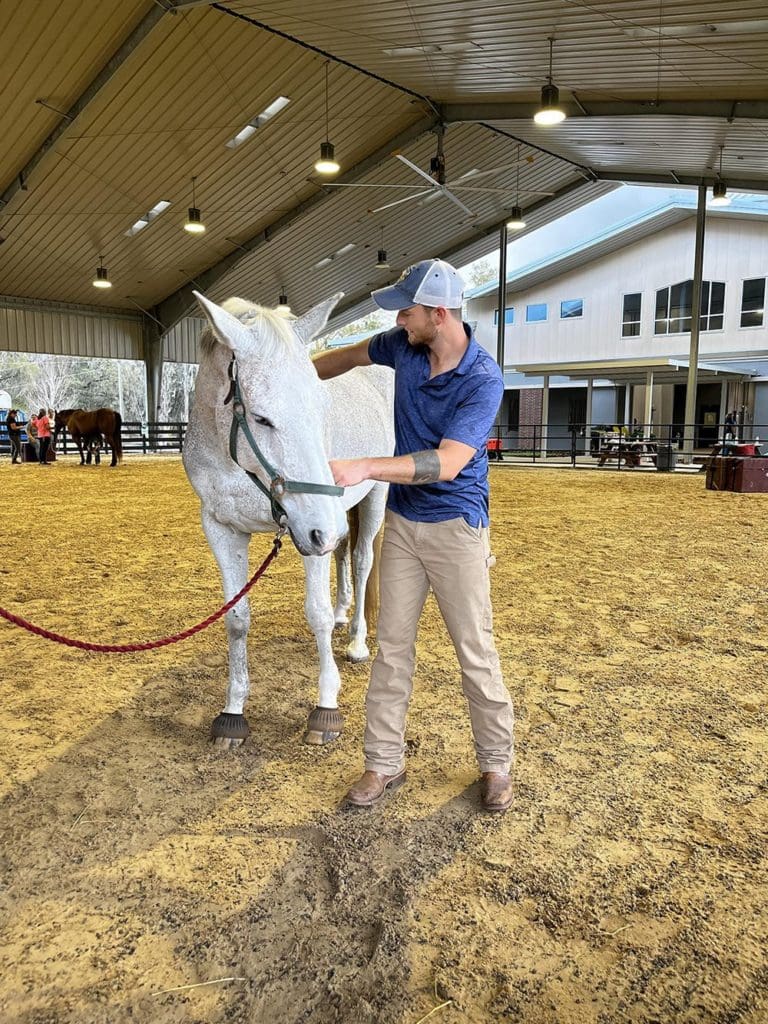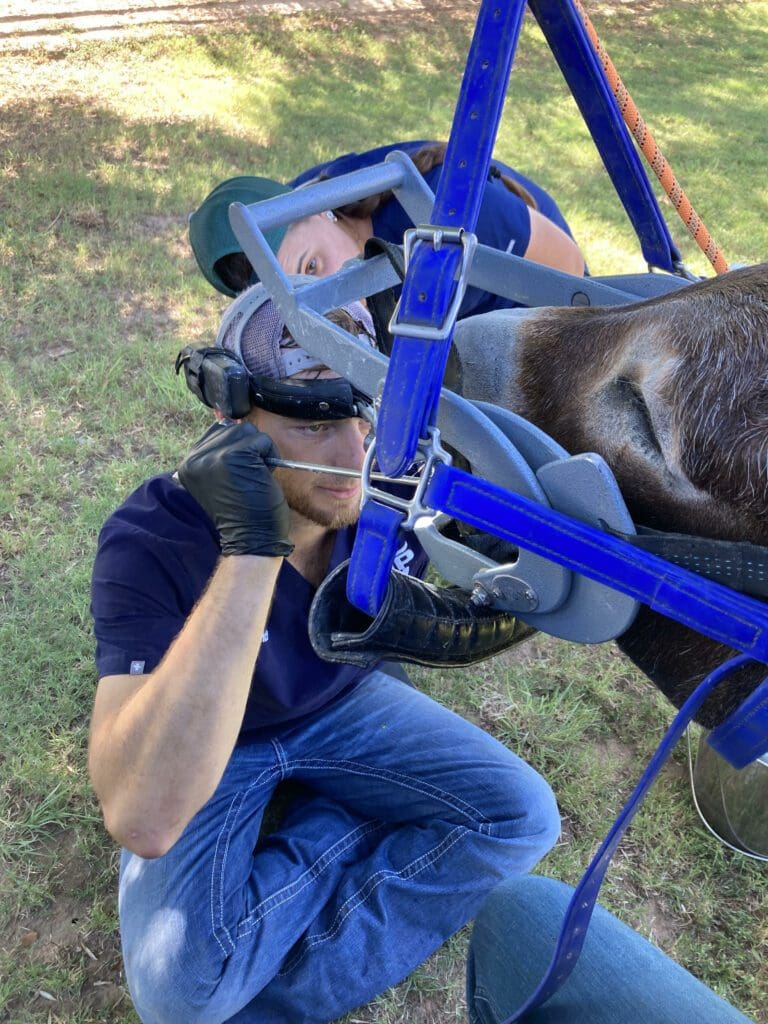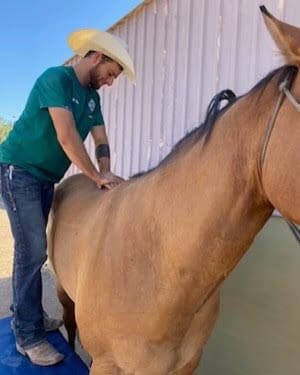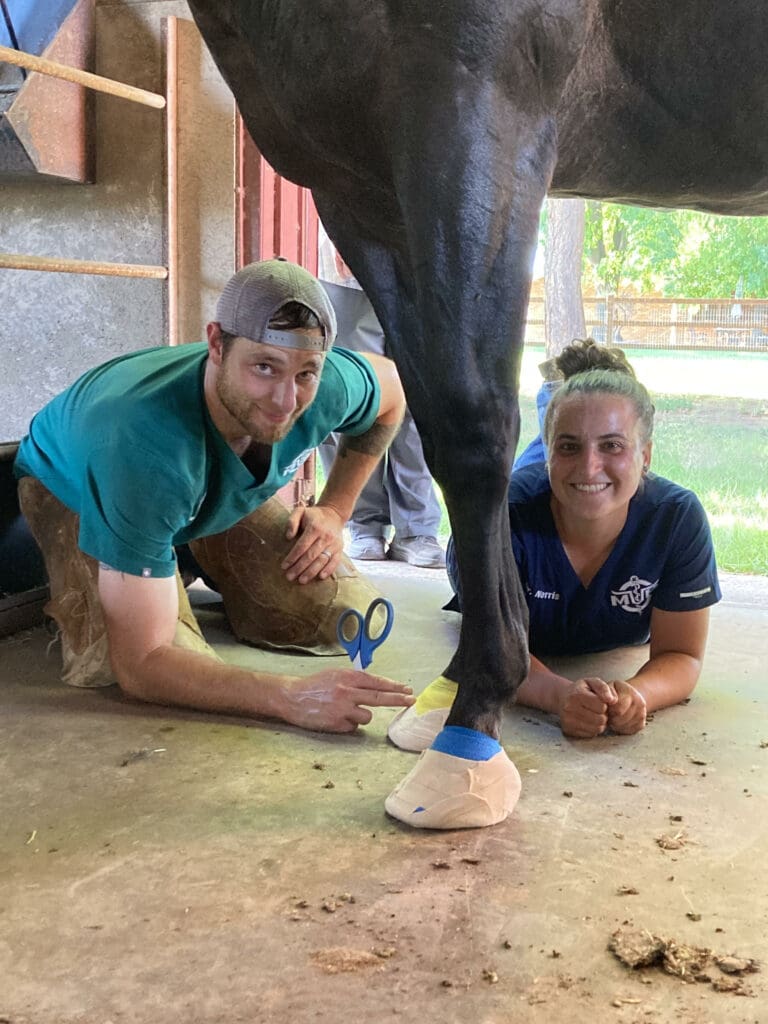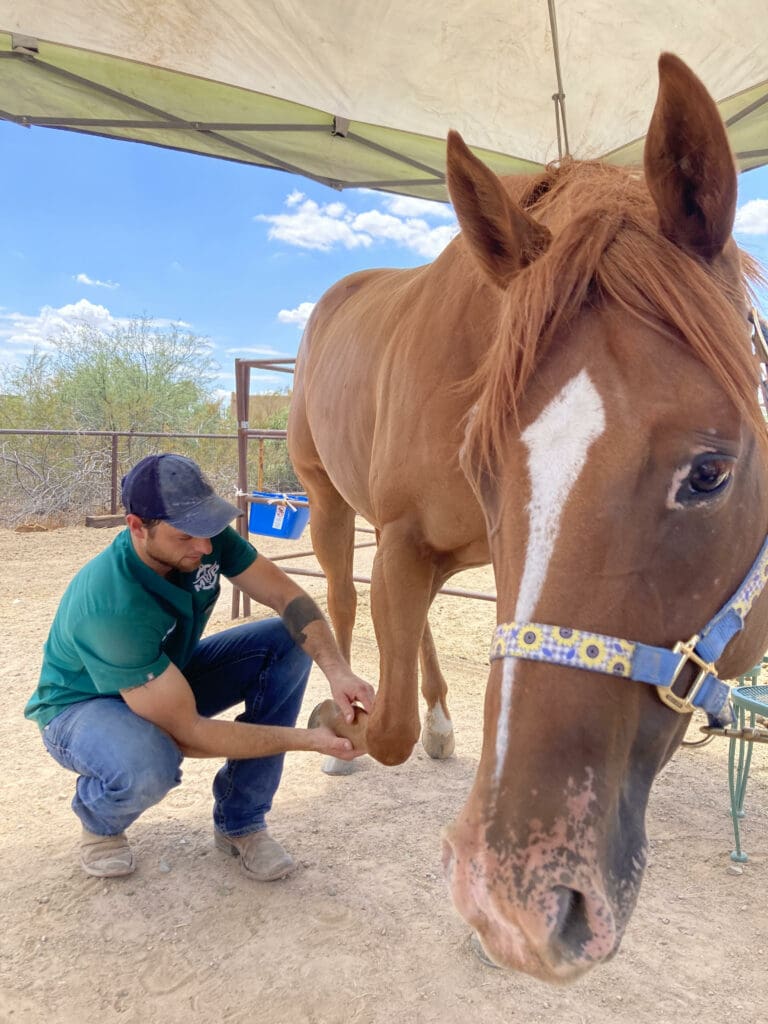Horses & Donkeys
Horse & Donkey Procedures
Congenital umbilical hernias are not uncommon in young horses and we offer this surgery in the field. We will give an injectable pain medication beforehand to provide pain management during and shortly following surgery. The animal is then sedated, the area around the hernia is locally blocked, and the hernia is surgically corrected. We provide a tetanus vaccine as well as post-op antibiotics and pain medications.
Whether it's your new yearling or an older stallion, we offer castrations for horses and other equids. Your animal will be placed in a surgical plane of anesthesia for the procedure and the surgical area will be locally blocked. We provide a tetanus vaccine as well as antibiotics and pain medications to keep your horse comfortable post-op.
Lacerations are one of the most common cases we see in our horse patients. Once we arrive to your property, we will sedate your animal first in order to better assess the wound. Depending on the severity and age of the wound, our doctors will either close it with primary or second intention methods. We will provide a necessary tetanus vaccine, pain medications, and antibiotics if indicated to keep your animal protected and comfortable.
For all of our dental procedures, we sedate the patient and then load them into our mobile stocks unit. Once the animal reaches a proper plane of anesthesia, an oral speculum is placed on the animal so our doctors are able to do a full oral exam with a mirror and light. Each mouth's findings and treatment will be charted and sent to you for your own records. Recommendations will be made based on what is found in the mouth. Our doctors use both power and hand float instruments to balance the mouth.
Dr. Burrows will evaluate your animal for any restrictions. A combination of exercises, acupuncture, laser as well as percussion massage can be utilized to help your animal be the best they can be!
Our doctors provide a complete physical exam and consultation for your animal. A typical wellness visit allows plenty of time to discuss nutrition, husbandry, and answer any additional questions specific to your animal’s needs.
Every animal’s immunization needs are different. We will tailor vaccinations to your animal’s needs based on age,history and environment.
Every animal’s immunization needs are different. We will tailor vaccinations to your animal’s needs based on age,history and environment.
Health Certificates (also known as CVIs) are required for any animal that is going to travel across state lines or internationally. Our doctors will perform a physical exam to ensure your animal is healthy and fit to travel. Additionally they will make sure your animal has all the necessary testing and paperwork required to travel and forward you the documents once completed for your records.
Coggins testing checks if a horse is a carrier for Equine Infectious Anemia (EIA), a deadly and contagious viral disease. A negative Coggins test is required for all interstate travel and at most equine facilities. Our doctors will take a blood sample from your animal for testing and will forward the finalized lab results for your personal records.
Our doctors will approach your horse's lameness systematically. We offer ultrasound and radiograph imaging if they are indicated and will provide multimodal pain management plans to keep your animal comfortable while they heal.
Prepurchase exams are recommended for any new horse purchase in order to determine if the animal is suitable for purchase. A PPE appointment will include assessment of the animal's physical health, lameness, neurological status, behavior, and ground manners. Radiographs of the all four feet is included as well. If additional testing or radiographs are indicated, they will be discussed at the appointment.
The number one emergency call for horses is one that our team is highly equipped and ready for. Do not hesitate to reach out if you notice your horse displaying the classic colic signs - not eating or defecating normally, kicking or pawing (especially at their belly), restlessness, or rolling. Our doctors will come out as soon as they are available to assess and triage your animal.
Living in Arizona, it is not uncommon to have animals experience dehydration, especially in summer time. Dehydrated horses are more prone to episodes of colic which is why our team takes your animal's hydration status seriously.
Whether it's for your newly purchased horse, for a horse that is lame, or anything in between, it is always a good time to inquire about farrier radiographs. Our doctors will work with your farrier and have experience managing acute and chronic hoof diseases. Having diagnostic imaging and measurements of the hoof parameters give your farrier the best chance at keeping your animal in top condition.
Health Certificates (also known as CVIs) are required for any animal that is going to travel across state lines or internationally. Our doctors will perform a physical exam to ensure your animal is healthy and fit to travel. Additionally they will make sure your animal has all the necessary testing and paperwork required to travel and forward you the documents once completed for your records.
For the majority of lameness cases, the answer is in the hoof. When all four feet turn up sound, our team has the option to take radiographs of the rest of the limbs in order to pinpoint the source of your animal's pain. Limb radiographs can also be used for Prepurchase Exams, non-healing chronic wound cases, and much more!

